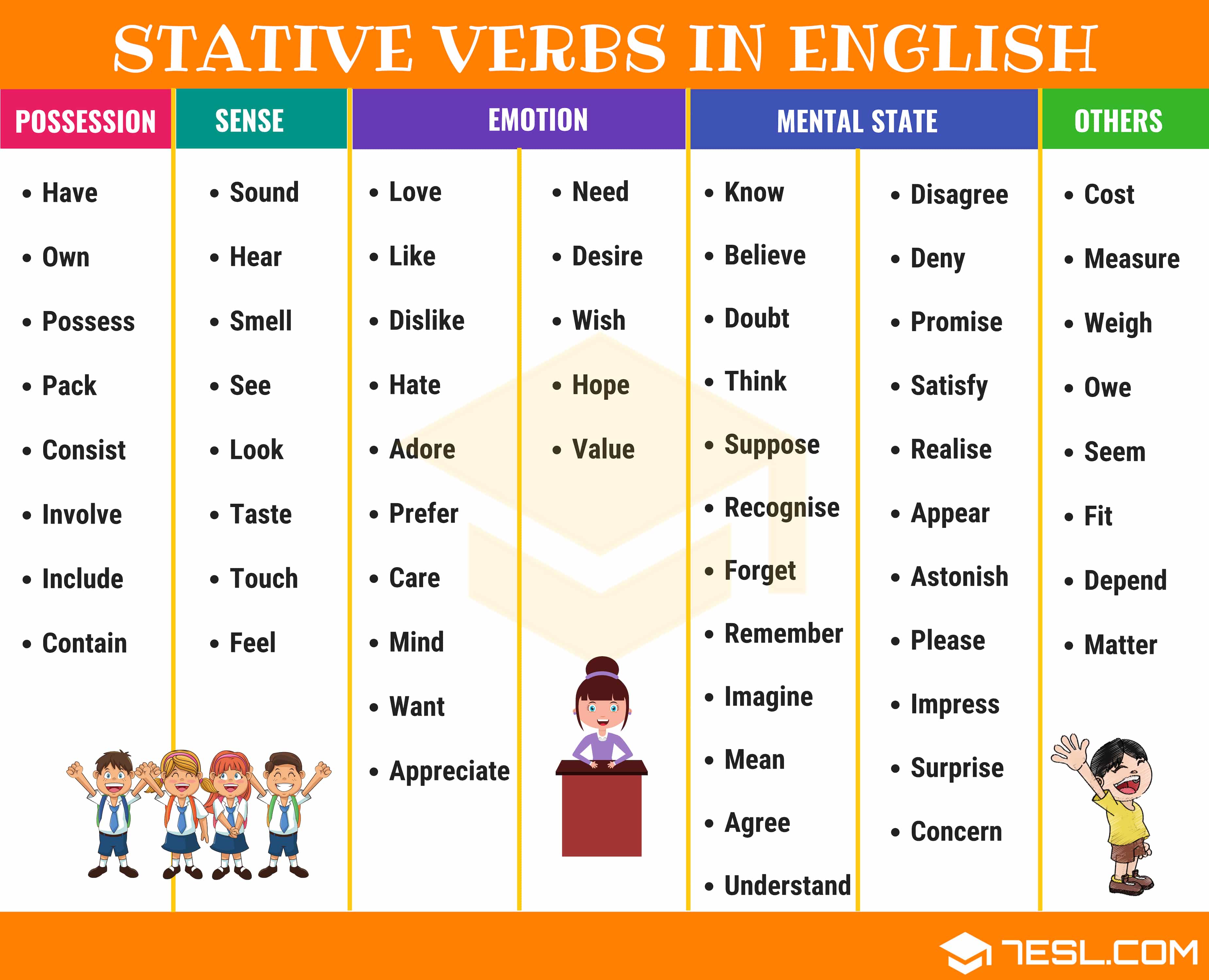Stative Verbs (State Verbs)! What is a stative verb? When you are looking to refer to a state of being rather than an actual physical action, you will need to employ the use of a stative verb. This is something that is very common in the English language and is an important aspect of grammar to have in your arsenal.
In this section, we are going to be looking at what a stative verb is, how it functions and a variety of examples to further show how they are used. This will enable you to form more complex sentences and begin to sound much more fluent in your conversations and writing.
What is a Stative Verb?
What is a stative verb? In English grammar, a “stative verb” means that the verb describes a state rather than an action.
Stative verbs are sometimes known as “state verbs.”
Look at these state verb examples:
- I hate this song.
- The report contains a great deal of statistical information.
- I appreciate John’s helping in time.
- I want you to meet my parents.
The above examples describe someone or something’s state of being in a particular situation. These verbs often describe states that last for some time.
Another point to remember is that stative verbs are not used in continuous tenses (like the present continuous, or the future continuous).
For example, you might say the following with a non-stative verb:
The two children are walking side by side.
However using the same form for a stative verb is incorrect:
I hating being treated as an invalid.
Instead, you’d simply use the present form:
I hate being treated as an invalid.
List of Stative Verbs
Learn a useful list of stative verbs in English with example sentences and ESL picture.
State Verbs of Possession
- have
- own
- possess
- lack
- consist
- involve
- include
- contain
State Verbs of Mental States
- know
- believe
- understand
- doubt
- think (have an opinion)
- suppose
- recognise
- forget
- remember
- imagine
- mean
- agree
- disagree
- deny
- promise
- satisfy
- realise
- appear
- astonish
- please
- impress
- surprise
- concern
State Verbs of Emotions
- Love
- Like
- Dislike
- Hate
- Adore
- Prefer
- Care for
- Mind
- Want
- Need
- Desire
- Wish
- Hope
- Appreciate
- Value
State Verbs of Senses
- Sound
- Hear
- Smell
- See
- Taste
- Touch
- Feel
- Look
Stative Verb of Measure, Cost and others
- cost
- measure
- weigh
- owe
- seem
- fit
- depend
- matter
- …
Stative Verbs in English | Picture










0 Comments